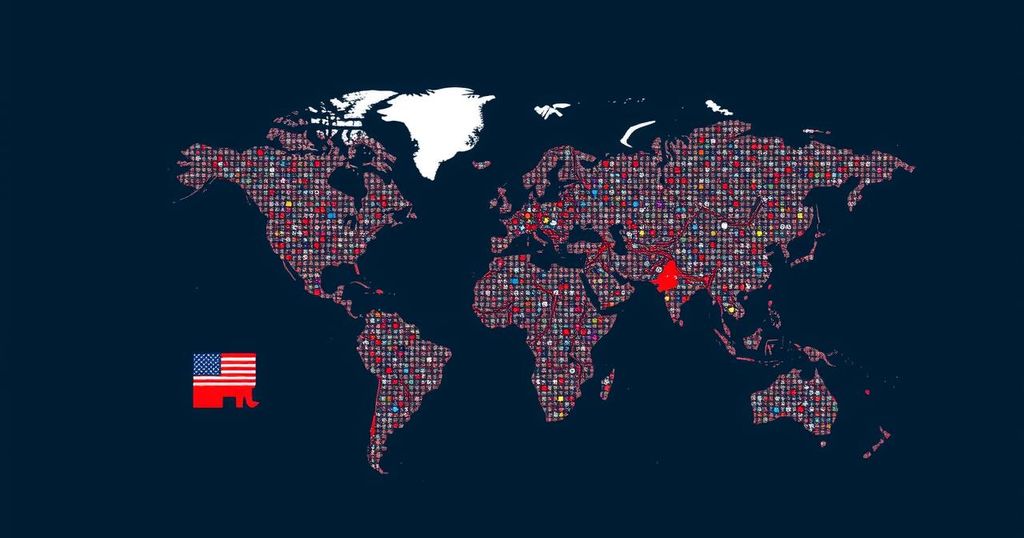Insights from the 2024 U.S. Election: A Global Perspective

The 2024 U.S. election exemplifies the nation’s political dynamics and their ramifications for international relations. Trump’s proposed tariffs on Mexico reflect a hardline immigration stance, while Harris favors diplomatic strategies, presenting voters with clear ideological choices that will shape America’s global role.
The recent U.S. election served as a significant reflection of the country’s political landscape and its implications for global relations. With heightened tensions regarding immigration, former President Trump has communicated a tough stance, suggesting potential tariffs on Mexico reaching up to 100 percent. This aggressive economic strategy reflects broader concerns over immigration policy and its impact on U.S.-Mexico relations. In parallel, President Harris’s approach contrasts with more diplomatic engagement, emphasizing her commitment to global collaboration. This divergence in policy illustrates a stark choice for voters and sets the stage for shifting diplomatic relationships based on the election outcome.
The 2024 U.S. election presented a critical juncture not only in American politics but also in its impact on international relations. As candidates positioned themselves on key issues such as immigration, foreign trade, and global diplomacy, their strategies and policies promised to reshape Americas’ role on the world stage. The election served as a litmus test for the country’s domestic issues, as well as how these matters resonate with international partners.
In conclusion, the 2024 U.S. election highlights a pivotal moment for American international relations, showcasing the contrasting policies of the major candidates. Trump’s aggressive economic measures regarding immigration may signal a more confrontational approach to foreign policy, while Harris’s commitment to diplomacy suggests a desire for collaborative engagement. Voter choice will undoubtedly influence the future trajectory of U.S. relationships worldwide.
Original Source: www.washingtonpost.com







